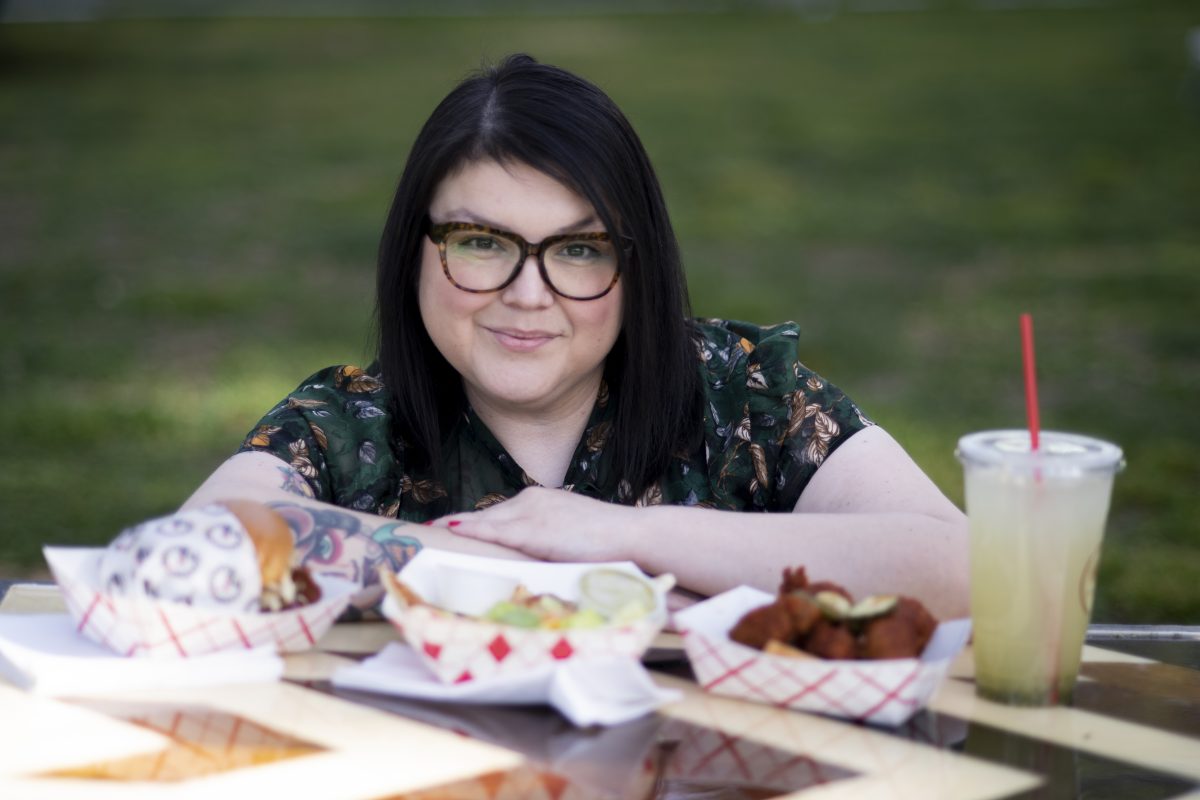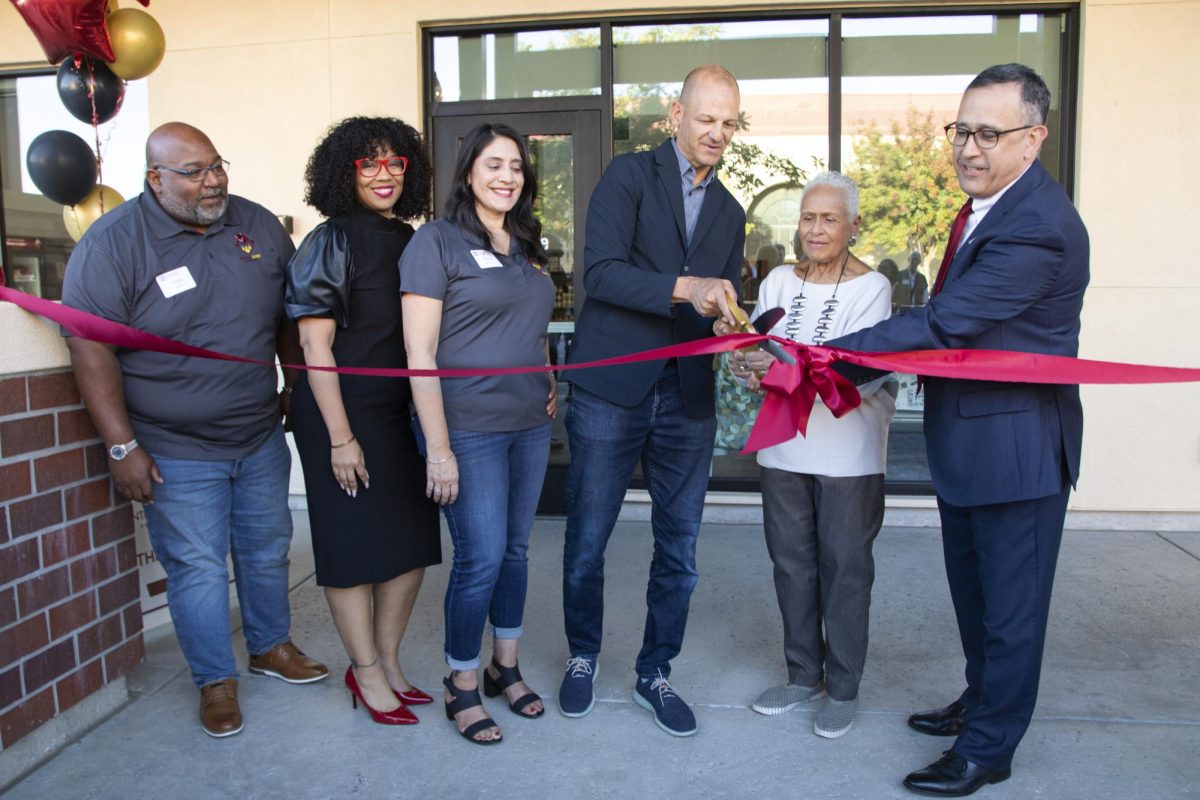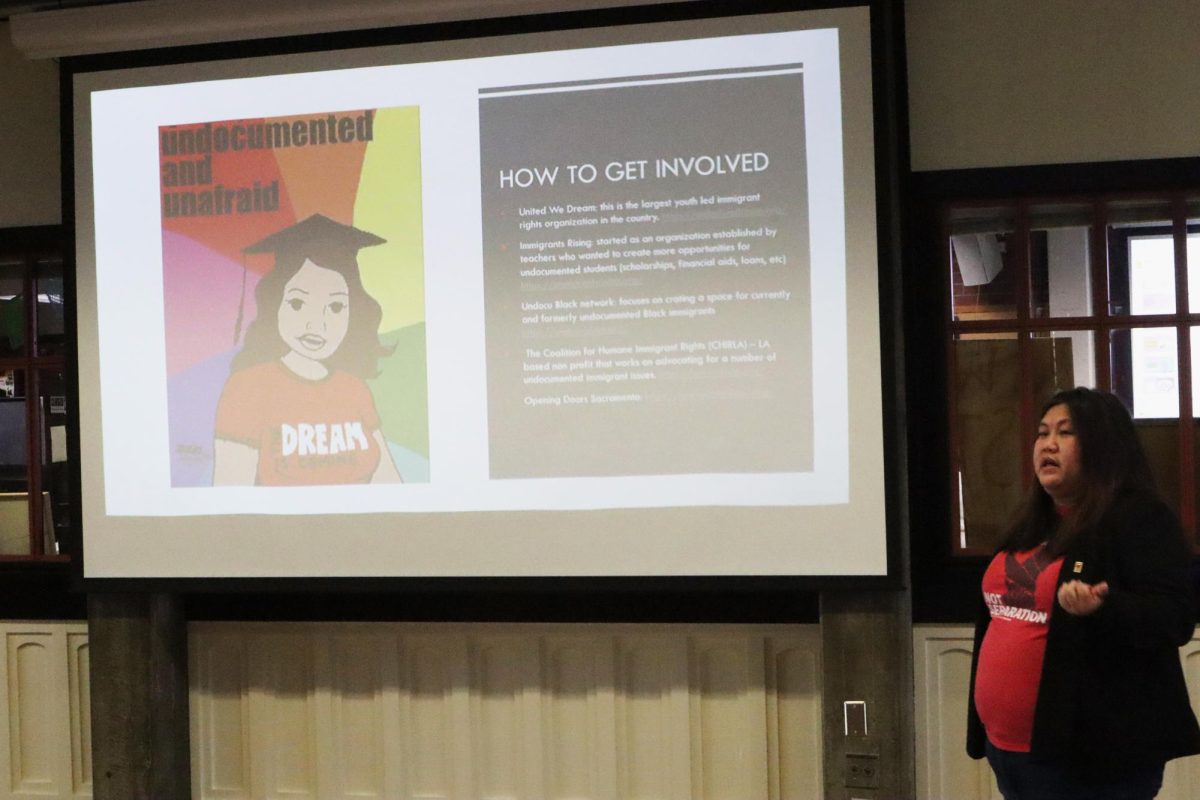From small-town journalism to the food editor for SFGate, Steph Rodriguez, a former Express editor-in-chief, has been challenging the status quo in her writing career for as long as she can remember.
Originally from Bakersfield, Rodriguez started her journey into journalism by writing for the sole newspaper in town, The Bakersfield Californian, while still a student in high school. She and a few other young editors were given a section of the paper where they could write their own stories.
Through her three years contributing to the paper, she remembers writing counterpoints to a lot of the conservative viewpoints, even among her student editor peers. “One time, I wrote a pro-‘Harry Potter’ opinion piece while someone else on our team wrote about how ‘Harry Potter’ was evil and should be banned from schools,” she says. “This is when ‘Harry Potter’ was considered controversial because of witchcraft.”
Craving more opportunity, Rodriguez moved to Sacramento in 2005 with the intention of using her writing to shine a light on people that are overlooked. “I did that naturally because I noticed who was missing from the conversation,” she says. “People who looked like me or my neighbors. … I didn’t think that was right, so I needed to be the change.”
After enrolling at City College, she took a variety of writing classes, including mass media, news reporting and magazine writing, and served on the staff of the Express. In the newspaper class, she noticed there was a story other writers were not taking, so she volunteered. “That story ended up changing my whole trajectory,” she says. “It got me into the editor field, so after that story I became editor-in-chief.”
Her investigative journalism exposed the Associated Student Body president at the time for bringing in anti-abortion displays and graphics from an outside organization to put all over campus for a day. “How did this get approved? Well, their company name was deceitful,” Rodriguez recalls. “And this guy was in cahoots with that organization and then a bigger organization where they would start those controversies throughout different colleges across the United States.”
Rodriguez says those organizations would then threaten to sue the schools if they didn’t allow their presence on campus because they believed it infringed on their First Amendment right to free speech. This eventually snowballed into more questionable events throughout the school year, which Rodriguez meticulously followed, including the recall of the ASB president. Her work ended up landing her the editor-in-chief position at the Express in 2010, as well as a first place award from the Journalism Association of Community Colleges.
Rodriguez says her time on the Express was foundational to her journalistic endeavors. “All the skills I’ve gained from there, just helped me onto the next step which was interning at the [Sacramento] News & Review,” she says.
There was also a level of support from the Express team that helped Rodriguez explore branches outside of her norm. Former Express adviser Jan Haag remembers Rodriguez’s eagerness and readiness to dive into any story. “Like all good journalists, she’s curious about the world around her and not shy about asking good questions even if she’s new to a topic, a situation or a person,” Haag says in an email.
Rodriguez began by copy editing for SN&R, and eventually worked her way up to food editor. She also was in charge of the cannabis section and earned the title of managing editor. “It felt really good to be a woman of color in charge of that position,” she says. “Also with the food editor position, I wanted to highlight mom-and-pop restaurants, small-batch companies, companies in south Sac, places that are accessible. I love food where food and culture intersect, but also telling stories of access.”
Current adviser of the American River College student newspaper Rachel Leibrock knows Rodriguez from their time on both the Express (where Leibrock was previously an adviser) as well as SN&R.
“She has always impressed me, not just with her writing, which is sharp and imaginative, but for her ability to write about almost anything,” Leibrock says via email. “Whether she’s writing about food or music, or covering harder news stories, she’s a smart journalist.”
Her hard work landed her the food editor position at SFGate in February, which has her reporting on all of the Bay Area’s diverse food culture and personally overseeing a team of three writers. The group will cover restaurants closing and opening, readers’ requests that pop up in her email asking her to shine a light on their place of business, or different takes on food involving vegetarianism and veganism. Her most recent story is about a woman in Marin County trying to save her water buffalo farm in order to continue her family cheese business, Ramini Mozzarella.
“SFGate is lucky to have her, and it’s been fun watching her become a masterful food writer in recent years,” Haag says.
Although Rodriguez’s original goal was to be an arts and culture editor, she realized a lot of her work had the common theme of food involved. “I had a story about how not to waste food in the kitchen from these chefs, or this Mexican holiday and what we celebrate and the foods we eat, so I feel like culture, food, it all ties together,” she says. “I love writing art and music pieces, and I think it ties back to that I just love writing about people. I’ve done food reviews when it was appropriate before the pandemic, but I’m more interested in people and their food and the story of their food. It’s the best way to learn about someone else’s culture — is through sharing a meal.”
“It’s been fun to watch her growth and I’m so excited to see what she does next at [SFGate],” Leibrock says.
Rodriguez also says the pandemic has caused some shifts in both the food and journalism industries, and how new issues interject the two. “Reporting-wise, you have to be really mindful of people’s time, especially in the restaurant industry,” she says. “Why? They’re short-handed, working long hours, they don’t have time to get back to you. So just be mindful of their time, because they’re probably washing the dishes, and cooking, and closing, and all that stuff by themselves.”
Upon reflecting on her work in journalism, Rodriguez shares what advice she would’ve given her younger self as a writer.
“If someone tells you that you can’t, prove to yourself that you can,” she says. “And if you mess up that’s fine, you’re not going to always be perfect, but learn from that. And ask a bunch of questions and listen and receive that information.”


























